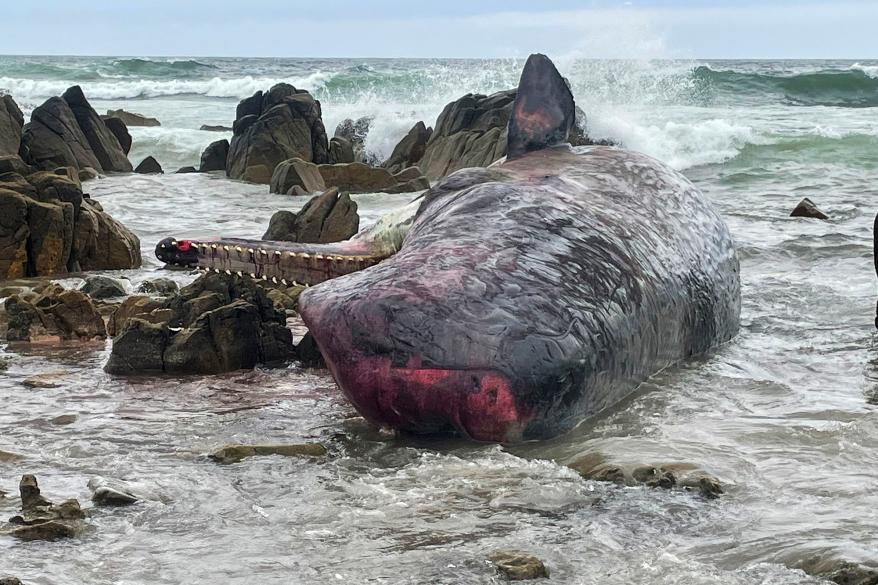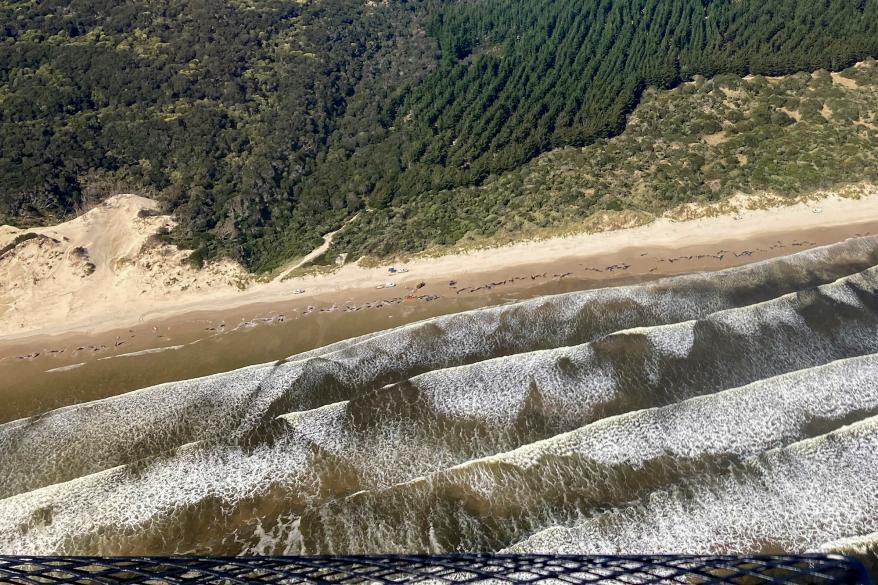Wildlife team rescues 32 beached pilot whales mass stranding in Australia
Australian wildlife experts on Thursday rescued 32 of the 230 pilot whales that were found beached on the shores of Tasmania a day earlier in a mysterious mass stranding.
The pod of whales was stranded on Ocean Beach in Macquarie Harbour on Wednesday, with at least half the whales presumed to still be alive at the time, the Department of Natural Resources and Environment Tasmania had said.
On Thursday morning, marine rescue teams found that only 35 of the whales survived the night, Tasmania Parks and Wildlife Service manager Brendon Clark said.
“Of the 35 that were remaining alive this morning, we’ve managed to refloat, rescue and release … 32 of those animals, and so that’s a terrific result,” Clark told reporters late Thursday at nearby Strahan.
“We still have three alive on the far northern end of Ocean Beach, but because of access restrictions, predominantly tidal influences, we just haven’t been able to access those three animals safely today. But they’ll be our priority in the morning,” Clark added.
The mass stranding comes exactly two years to the day after about 470 long-finned pilot whales were found stuck on sandbars in the same harbor, which has a notoriously shallow and dangerous channel known as Hell’s Gate. After a week-long effort, 111 of those whales were rescued but the rest died.
It also comes two days after the carcasses of 14 young, male sperm whales were found on King Island, part of the state of Tasmania in the Bass Strait between Melbourne and Tasmania’s northern coast.
Marine wildlife experts have said it is still too early to tell why the stranding occurred.
“These mass stranding events are typically the result of accidental sort of coming to shore, and that’s through a whole host of reasons,” Marine Conservation Program biologist Kris Carlyon said.
Carlyon said the dead whales would be tested to see if there were toxins in their systems that might explain the tragedy.
The pilot whale often travels in groups and is known for stranding in mass numbers, for reasons that are still unclear, according to the NOAA Fisheries.
Read the full article Here




